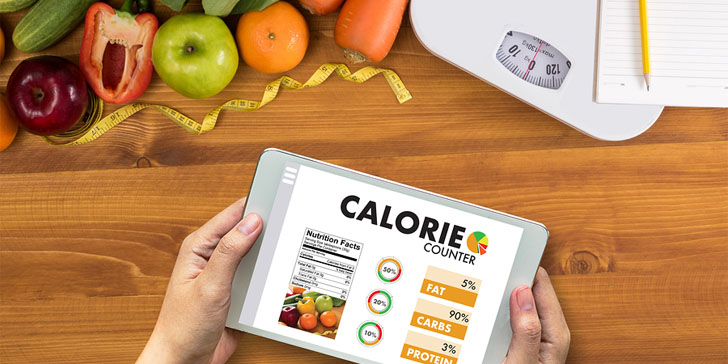On paper, the concept of losing weight seems so simple: just make sure that you burn more calories that you consume and that’s pretty much it. However, in reality, there are tons of other factors that come into play, making weight loss a serious undertaking.
We will not go into the details of the many challenges that come with weight loss as there’s a very good chance that you’re well aware of it. You’ll hit a snag in a lot of stages in your fitness journey, testing your determination and drive to get into shape.
What we want to look more closely into, however, are the foolproof ways to move forward into your fitness journey. Despite the many challenges, there are surefire ways to gain some progress in reaching your goals. One of the most popular tricks is calorie counting.
Calorie Counting: Monitoring Your Food Intake
When trying to lose wait, exercise is usually not enough. Tweaking your diet is also necessary if you truly want to change things up and create a caloric deficit.
If you’re not familiar with the concept yet, creating a caloric deficit involves burning more calories than the amount you take in. By doing so, you’ll effectively offset the calories you consume, keeping your body from storing fat. It’s an excellent way to lose weight as it will also force your body to use your stored fats as energy.
There are lots of ways to create a caloric deficit. The simplest way is to eat less calories than you used to and perform regular workouts to burn calories and fats. Lots of people achieve great results from this technique just by limiting their portions a little bit and actually exercising. It can be a bit challenging if you have a ravenous appetite as an hour of exercise might not cut it for you. Long workouts are not ideal, however, so you can’t just try to make amends by spending more time doing CrossFit or joining multiple sessions at SoulCycle.
One way to deal with this issue is by changing your diet. Opting for food items with lower caloric content is a solid alternative. Doing this will allow you to limit your caloric intake without limiting the amount of food you’ll consume. It can be quite tricky but it often works. It’s also a better move as most low-calorie food items are nutritious.
Counting your calories is another popular approach to creating a calorie deficit. As there are estimates for the amount of calories you’ll burn with specific workouts based on various factors, you can have a good idea of how much you can only eat if you don’t want to go beyond the amount you’ll burn with your regular workout.
It’s calories in vs calories out, so if you eat less than you expend, your body won’t store the excess as fat. By consuming less calories than what you tend to expend, your body will also compensate for its needs by drawing from your storage. This will help you lose weight as a result.
The Negative Side of Counting Calories
Counting calories can really be a great way to monitor your calorie intake and make sure that you’re consuming less than what you use. However, it’s a very tedious process. Having to log the calorie count of all of the food items you eat is a laborious and wearisome activity. Even if you’re not necessarily depriving yourself of your favorite foods, if you have to limit your overall consumption and then log every little thing, you’ll eventually feel exhausted and pressured about staying under your target amount.
While experts recognize the effectiveness of the technique, many are against the practice. Lots of nutritionists and health experts do not recommend calorie counting as it comes with a number of issues.
For starters, it will make you focus on the numbers. This can make the whole process a lot more stressful for a lot of people and can cause you to develop an unhealthy relationship with food. Most people get so focused over quantity instead of quality and it’s not very helpful if you want to be healthier. It can also take a toll on your mental health as you might feel compelled to compensate for going over your daily limit. Imagine spending
What to Do Instead
While counting calories work for some people, it’s not recommended by a lot of experts. It’s not an exact science and the calories in/calories out idea is overly simplistic. There are other factors that come into play when it comes to how the body uses calories so it’s not really just about the quantity that you should focus on. The kind of calorie you consume is also notable, so if you focus on just counting, you won’t be able to take such details into consideration.
What you should do instead is to focus on the quality of the food you’ll consume. Experts emphasize that consuming more fresh, whole foods that are packed with the nutrients you need will be way better than counting your calories. If you swap your processed, preservative-packed favorites with fruits, veggies, and other whole foods, you’ll be able to cut down your calorie count without feeling unsatisfied and deprived.
